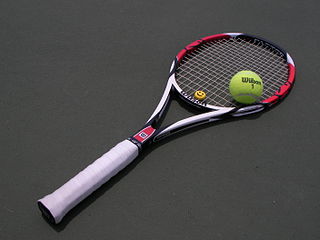If one of your New Year’s resolutions is “practice every day”, here are a few tips I’ve discovered while establishing and maintaining my own (mostly) daily accordion practice habit:
#1: Define “Practice”
What counts as practice? What’s the least thing you could do that would justify checking the box next to “I practiced today”? Does playing a gig or teaching a lesson count?
It’s up to you, but I recommend going as basic and simple as possible. I’m talking absurdly basic. Author Stephen Guise calls these mini habits–habits that are “too small to fail”.
I decided to make the rule that, as long as I played a single scale on the accordion, I could “count” it. On those days when I’m not really motivated and would rather do something (anything!) else, I still force myself to at least play that scale.
And you know what? Nine times out of ten I’ll finish and think “well okay, maybe a quick tune.” Next thing you know, it turns into a full-blown practice-fest! But even when it doesn’t, that measly scale is still better than nothing. As Daniel Coyle writes in The Little Book of Talent (which I highly recommend), even short sessions can be useful:
“With deep practice, small daily practice ‘snacks’ are more effective than once-a-week practice binges. The reason has to do with the way our brains grow—incrementally, a little each day, even as we sleep. Daily practice, even for five minutes, nourishes this process, while more occasional practice forces your brain to play catch-up.”
#2 Define “Daily”
Look, life happens. You gotta give yourself an out now an then. Put some wiggle room in the rules. (After all, even the Guinness Book of World Records lets you take a bathroom break now and then.)
I went with what I call the “three-hour rule”. If I’m home and awake for at least three hours, then that’s a practice day. If I’m away from home on vacation, or if it’s one of those crazy days where I’m out the door in the morning and not back until very late that night, then practice is “optional, but encouraged.”
You might want to also give yourself a few “whoops!” passes in advance for those times when you might just plain forget. And you should definitely give yourself a break if you’re nursing an injury (better to take a week off now than a year off later). The important thing is to not let accidentally ruining a “perfect” streak discourage you from completing a “nearly perfect, but still extremely helpful” streak.
#3 Keep Track
“I think the soundest management advice I’ve
heard is the old saw: ‘What gets measured gets done.'”
— Tom Peters
I’m a big fan of keeping a practice journal of some type, which not only keeps track of the days you practice but also allows you to record helpful notes about what you practiced, what you need to work on next time, broader goals, etc.
If it’s a paper journal, it has the added benefit of giving you a physical representation of your progress as you make your way through the pages (and, eventually, through more notebooks). You can also put it on your pillow, where it will keep you from going to bed without remembering to practice!
#4 Remove Barriers
The process of starting a practice session should have as little “in the way” as possible. Leave the music stand out with a chair in front of it if you can. Keep your instrument nearby, maybe even out of its case. Have your other tools-of-the-trade (metronome, pencil, tuner, etc.) at the ready.
The fewer steps you have to take to start playing, the more likely it is that you’ll do so.
#5 Be Grateful
How awesome is it that you can play a musical instrument? I don’t care if you’re a rank beginner or if you’re Joshua Bell. The fact that music even exists in the universe is a thing of wonder, and the ability to just conjure it up at will is pretty much a flat-out miracle.
A daily practice commitment is not a burden, even though it might feel like one now and then. It’s a choice to participate in something great, and we makers of music are fortunate to be able to make that choice.
So from this moment on, I want you to remove the phrase “I have to practice” from your vocabulary and replace it with “I get to practice.”



